Managing Templates
Templates in AnyDB allow you to standardize data document structures, save time, and maintain consistency across your team's workflows. Once created, templates simplify creating consistent data documents and improve efficiency across your team.
Creating a New Data Document Template
To create a new template:
- Create a new Data Document.
- Configure the layout, fields, and structure as needed.
- Once finalized, click Save as Template from the top-right menu.
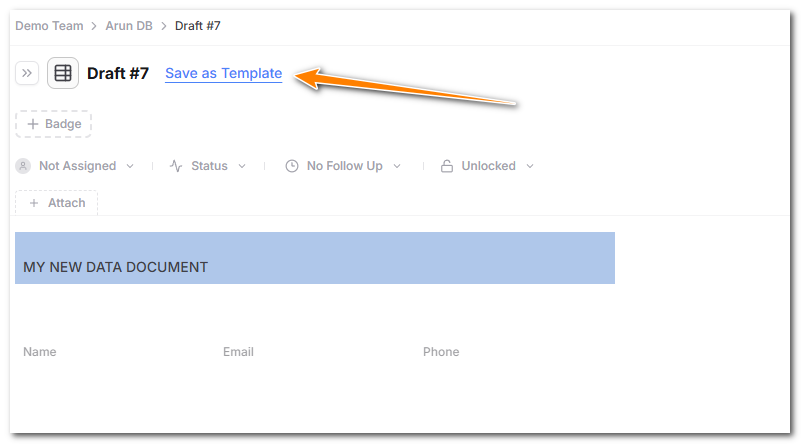
- In the template creation dialog:
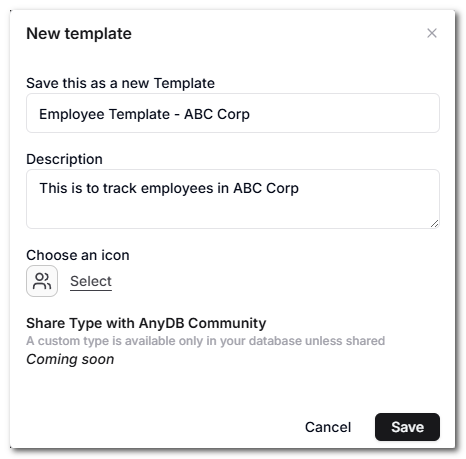
Enter the following:
- A unique template name
- An icon to visually identify the template
- A description explaining its purpose
Note: Templates are scoped to the current database only. They will not automatically appear in other databases unless exported and imported.
Note: Template names must be unique within the database. If the name provided already exists, it will not be allowed.
Note: Only database owners can create and update templates.
Updating an Existing Template
To modify an existing or pre-built template:
-
Create a new Data Document from the template you want to update.
-
Make any changes to the layout, fields, or formulas.
-
A visual alert will appear near the document title indicating the template has been modified.
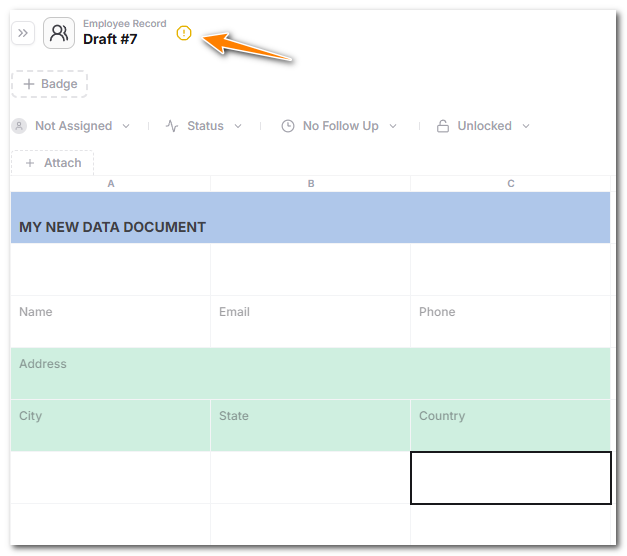
-
Click the alert to open the Template Modified dialog.
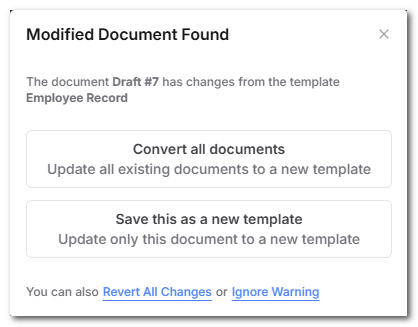
You can choose:
-
Convert all documents
Converts all existing documents created from the original template to use the new layout and structure. -
Save this as a new template
Creates a new template based on the updated design without affecting existing documents. -
Revert all changes
Discards the modifications and restores the original template layout. -
Ignore warning
Removes the modification alert from the current data document without applying any changes.
Important:
When selecting Convert all documents, all existing data documents using the original template will be updated to the new structure. This may alter or remove existing data.
The conversion runs in the background and may take time depending on the number of documents. You will receive a notification once the process completes. Review carefully before proceeding.
Exporting Templates
Templates can be exported for backup, sharing, or transferring to other databases or teams.
To export:
- Open any data document created from the desired template.
- Click Export and select JSON.
- In the export dialog, choose Template.
A JSON file containing the template structure will be downloaded.
Importing Templates
To import a template into another database:
- Navigate to the target database.
- Open Manage Database.
- Go to Templates.
- Click Import Template.
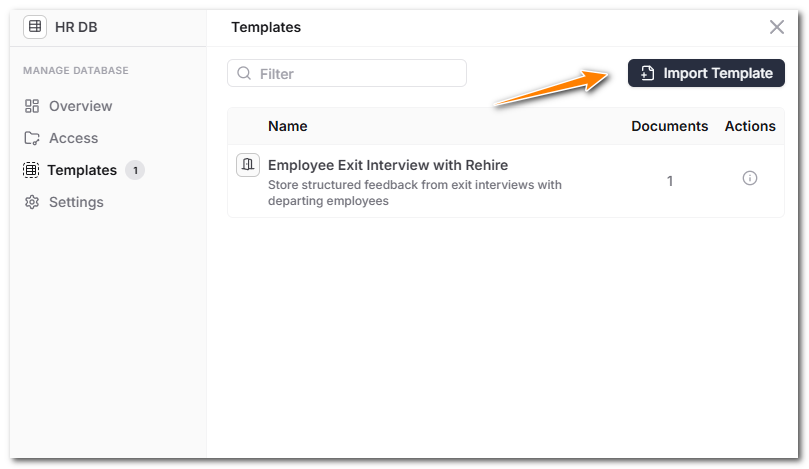
- Select the previously exported JSON.
Once imported, the template will be available to all team members in that database.
Importing a template transfers the layout, field types, and styles only. No data is included.
Best Practices
-
Version Templates
Save a new version when making significant changes rather than overwriting existing templates. -
Use Clear Naming Conventions
For example:Customer Record v1.0,Invoice Template Q2 2025. -
Test Before Deployment
Apply templates to sample data documents to ensure they work as expected before broad adoption. -
Document Template Purpose
Provide clear descriptions to help users understand when and how to use each template.